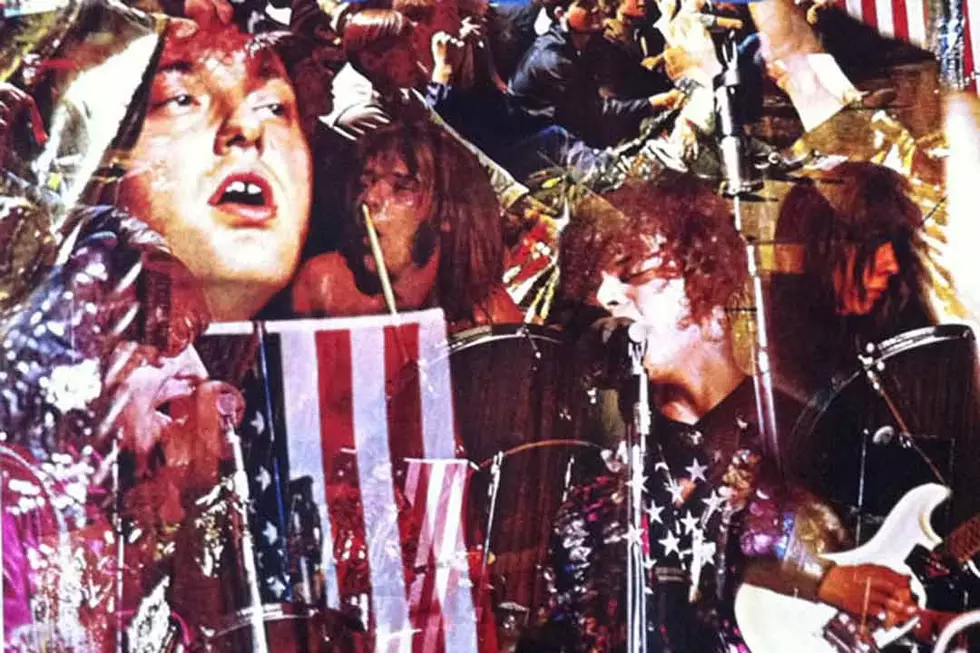
How MC5 Started a Revolution With ‘Kick Out the Jams’
“Right now … right now … right now it’s time to …”
… time to turn back the clock and mark the February 1969 release of one of history’s most iconic, revolutionary, paradigm-shifting rock and roll albums. This is a testimonial of the MC5’s seismic Kick Out the Jams.
A genre-busting touchstone for both punk rock and heavy metal (just ask Motorhead’s Lemmy Kilmister), Kick Out the Jams was – atypically for debut albums – recorded live, because Elektra Records A&R man Danny Fields wisely judged that no studio would have been capable of capturing the sheer energy, excitement, and danger produced by the high-decibel quintet at one of their hometown shows at Detroit’s infamous Grande Ballroom.
Since 1965, singer Rob Tyner, guitarists Wayne Kramer and Fred “Sonic” Smith, bassist Michael Smith and drummer Dennis Thompson had been cutting their teeth in and around the Motor City: gradually evolving from British Invasion and garage rock foundations to incorporate the region’s R&B influences and even the work of free jazz exponents like John Coltrane and space-jazz legend Sun-Ra.
The latter’s unique aesthetic would duly inform Kick Out the Jams’ tripped-out "Starship," while those osmosis-acquired R&B and blues lessons made their presence known in apocalyptic blasts like "Rocket Reducer No. 62 (Rama Lama Fa Fa Fa)," "‘Motor City is Burning" and "I Want You Right Now." Finally, the young group’s interpretation of rock and roll history resulted in heavy rock and proto-punk slabs such as "Ramblin’ Rose," "Come Together" and "Borderline."
Listen to MC5 Perform 'Ramblin' Rose'
Fittingly, the LP stirred public opinion as soon as it hit record store shelves — seemingly because of Tyner’s profane invocation while announcing the title track (later overdubbed with “Kick out the jams, brothers and sisters”), but primarily due to the militant associations spearheaded by band manager John Sinclair.
Much more than a simple manager, Sinclair carefully orchestrated a comprehensive philosophical manifesto for the MC5 — one that went well beyond their music and, although rooted in the same, wide-ranging call for societal reform prevalent throughout the late-‘60s, took things quite a few steps further into fiery activism and included a controversial affiliation with the White Panther Party.
Between these two points of conflict, mainstream retail chains were soon refusing to carry the album (and anything released by Elektra, for that matter), inevitably forcing the record company to censor Tyner’s rallying cry, as explained above (though not before limited quantities landed behind record store counters), and irreparably damaging band/label relations.
Within the year, Sinclair would be incarcerated on trumped-up drugs charges, Elektra would drop the MC5 for fear of further recriminations, and the band would never recover their musical or emotional momentum, thus making Kick Out the Jams an even more historically unique and, ironically, powerful musical statement that still reverberates down the decades.




